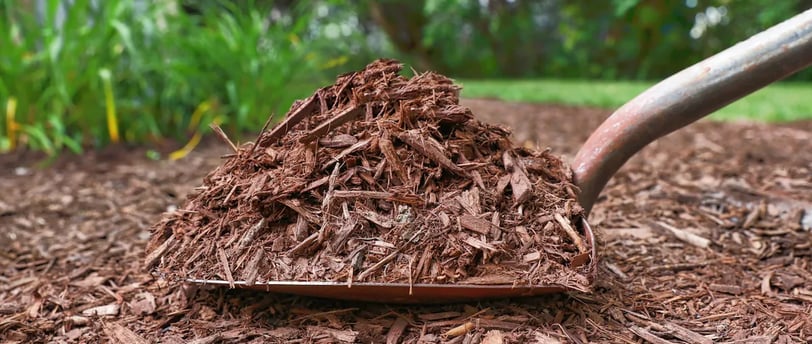Importance of Mulch
When it comes to maintaining a healthy, thriving garden, mulch is one of the most underrated yet essential tools in a gardener’s arsenal. Whether you’re a seasoned green thumb or a beginner, understanding the importance of mulch can transform your gardening game. From conserving water to boosting soil health, mulch offers a wide range of benefits that go beyond just making your garden look neat and tidy. Let’s explore five key reasons why mulch is a must-have for your garden.
GARDENING TIPS
Grace Chen
2/24/20252 min read


1. Mulch Conserves Moisture and Reduces Watering
One of the most significant benefits of mulch is its ability to retain soil moisture. By creating a protective layer over the soil, mulch reduces evaporation, ensuring your plants stay hydrated for longer. This is especially important during hot summer months or in regions with water restrictions.
Pro Tip: Organic mulches like wood chips or straw are particularly effective at retaining moisture while also improving soil structure over time.
2. It Suppresses Weeds Naturally
Tired of spending hours pulling weeds? Mulch acts as a natural weed barrier by blocking sunlight from reaching weed seeds, preventing them from germinating. This means less time spent weeding and more time enjoying your garden.
Did You Know? A 2-3 inch layer of mulch is usually sufficient to keep weeds at bay without suffocating your plants.
3. Mulch Improves Soil Health
Organic mulches, such as compost, leaves, or grass clippings, break down over time and enrich the soil with essential nutrients. This process improves soil structure, promotes microbial activity, and encourages healthy root growth. In short, mulch feeds your soil, which in turn feeds your plants.
Gardening Hack: Combine mulch with compost for an extra boost of nutrients and organic matter.
4. It Regulates Soil Temperature
Mulch acts as an insulating layer, keeping soil cooler in the summer and warmer in the winter. This temperature regulation is crucial for protecting plant roots from extreme weather conditions, ensuring they thrive year-round.
Fun Fact: In colder climates, mulch can prevent frost heaving, which occurs when soil repeatedly freezes and thaws, damaging plant roots.
5. Mulch Prevents Soil Erosion
Heavy rain and wind can wash away or blow off topsoil, leaving plant roots exposed and vulnerable. Mulch helps anchor the soil in place, reducing erosion and protecting your plants. This is especially important for sloped gardens or areas with loose, sandy soil.
Friendly Tip: If you’re searching for "how to prevent soil erosion" or "gardening tips for sloped yards," mulch is your answer!
Conclusion: Why Mulch is a Garden Essential
From conserving water and suppressing weeds to improving soil health and preventing erosion, the importance of mulch cannot be overstated. It’s a simple, cost-effective way to enhance your garden’s health and appearance while saving you time and effort.
Ready to Mulch Your Garden? Start by choosing the right type of mulch for your needs—organic options like wood chips, straw, or compost are great for most gardens. Apply a 2-3 inch layer around your plants, keeping it a few inches away from stems and trunks to prevent rot.
By incorporating mulch into your gardening routine, you’re not just beautifying your space—you’re investing in the long-term health of your plants and soil. Happy gardening!
